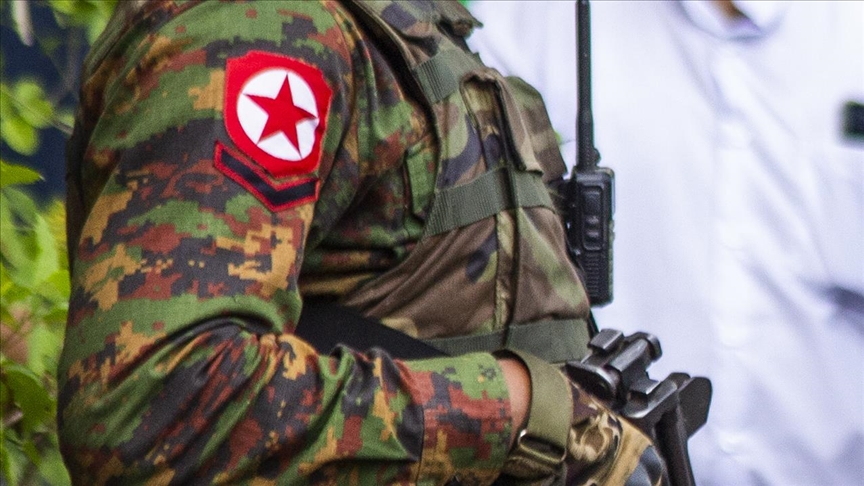Thailand's ambivalence towards regional peace, its ‘exemplary’ ties with the Burmese junta
- Christophe Gargiulo

- Aug 3, 2025
- 3 min read
Thailand's double game is part of a regional strategy in which its image as a mediator never obscures its desire to preserve, or even increase, its influence over its neighbours and over the peace processes themselves. This stance is not exclusive to the conflict with Cambodia: it reappears with force in the Burmese crisis.

Tailor-made peace or war for advantage?
During episodes of tension with Cambodia, particularly over border disputes between 2008 and 2011, Thailand positioned itself as a proponent of dialogue while pursuing an offensive or wait-and-see policy on the ground, depending on its strategic interests.
Behind the call for a ceasefire lies not a sincere commitment to universal peace but a desire to impose a ‘status quo’ favourable to its own claims, whether territorial interests or regional image. Any peace agreement envisaged is de facto conditional on the maintenance of a balance of power favourable to the Thai army and its government. This stance is not isolated: it is reappearing with force in the Burmese crisis.
The Burmese example: between military brotherhood and economic complicity
Thailand's double discourse is particularly evident in its relations with Burma. Far from causing a break with the junta, the 2021 military coup in Naypyidaw highlighted the de facto solidarity between the two military apparatuses. There is a real ‘brotherhood’ between the Thai army and the Tatmadaw (the Burmese army), forged by a history of coups, a shared border of nearly 2,400 km and common security and commercial interests. The ties are also economic:
the energy sector and Myanmar's natural resources offer considerable opportunities for certain Thai state-owned companies, which are accused of financially supporting the Myanmar junta.
Thailand's official reaction to the February 2021 coup was revealing of this closeness: ‘It's an internal matter,’ said the deputy prime minister, repeating a classic argument of non-interference while giving the neighbouring junta free rein. This solidarity takes many forms: political support, security cooperation, and even mimicking the rhetoric of promising sham elections to normalise military regimes.
Thailand itself returned to power following a military coup in 2014, followed by controversial elections that kept the junta in power amid popular protests.
The ASEAN diplomatic impasse and international leniency
The case of Myanmar illustrates the inability of the international community – and ASEAN in particular – to impose a credible solution to the crisis. The famous ‘five-point consensus’ launched in 2021, calling for an end to violence and inclusive dialogue, has remained a dead letter, with the junta refusing any serious mediation and ASEAN members – including Thailand – favouring non-interference or symbolic humanitarian gestures without constraints.
This regional inertia, reinforced by divisions between pro-democracy states and military or authoritarian regimes, allows Thailand to hide behind collective legitimacy and never truly commit to a return to democracy, in Myanmar or elsewhere.
The international community's complacency towards the Burmese military – refusal to impose tough embargoes, lack of massive intervention, recognition of the status quo – feeds the Thai military's belief that it can act without fear of reprisals.
This leniency encourages the Thai military, bolstered by its own internal support and culture of coups, to view the militarisation of power, the repression of the opposition and the denial of democratic aspirations as politically viable options in the event of internal crisis – or even as assets in regional negotiations.
A peace process that is being used as a tool
When Thailand gets involved in peace processes, whether with Cambodia or as a mediator in the Burmese crisis, it is often to control the agenda and serve its strategic or commercial interests. Progress towards peace is conditional on preserving its influence, while real peace could reduce its military or diplomatic room for manoeuvre.
In both the Cambodian and Burmese crises, the Thai army is using peace as a lever to legitimise its role and avoid internationalising conflicts that would force it to make real concessions.
Thailand is thus emerging as the master of regional double-dealing: advocating peace while protecting its areas of interest, displaying benevolent neutrality towards the Burmese junta and trading its cooperation according to the balance of power.
This institutionalised hypocrisy, facilitated by international inaction and divisions within ASEAN, risks establishing the Thai exception and the Burmese example as regional norms, to the detriment of democratic momentum in Southeast Asia.







Comments